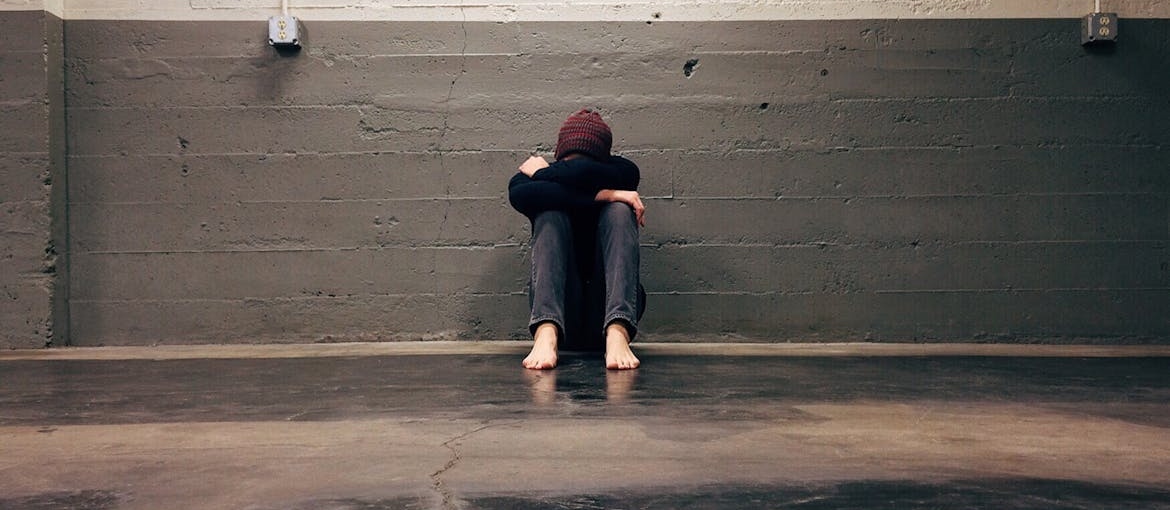Forgiving yourself after addiction is one of the hardest parts of healing. Many people carry shame and guilt that feel too heavy to let go. These feelings can keep you stuck and make recovery even harder. Self forgiveness in recovery isn’t about ignoring mistakes. It’s about learning from them and giving yourself the chance to move forward. Recovery is already a big step, and adding forgiveness gives you space to heal emotionally. You deserve that peace. At Harmony Ridge Recovery Center WV, people learn how to rebuild their lives while letting go of self-blame. With support and practice, you can start treating yourself with the same care you give others. It’s not easy, but taking that step makes recovery stronger and more lasting.
Why Self Forgiveness Feels So Difficult
Many people in recovery struggle with the idea of forgiving themselves. Self forgiveness in recovery feels hard because guilt and shame are heavy emotions that don’t go away quickly. Mistakes from the past often replay in your mind, making it seem impossible to let them go. Addiction may have caused harm to loved ones, and that pain can be difficult to face.

Self forgiveness in addiction recovery doesn’t mean excusing what happened—it means allowing space to heal. The brain often ties forgiveness to weakness, but that’s a false belief. Real forgiveness takes strength. Asking yourself why is forgiveness important in recovery may feel uncomfortable at first, but the truth is simple: it allows growth. Without forgiveness, recovery feels stuck in the past instead of focused on the future.
The Role of Self Forgiveness in Addiction Recovery
Self forgiveness in recovery is more than a personal choice—it supports long-term healing. Forgiveness helps reduce shame and makes space for healthier relationships. It allows you to rebuild trust with yourself, which is vital for recovery. Here’s how it impacts your life:
- Mental health: Lowers anxiety and depression linked to guilt.
- Relapse prevention: Makes setbacks easier to handle without shame.
- Relationship repair: Opens the door to rebuilding trust with others.
- Stress management: Creates space for healthier coping strategies.
- Personal growth: Encourages focus on progress instead of regret.
Steps to Begin Self Forgiveness in Recovery
Learning how to forgive yourself doesn’t happen overnight, but it is a process worth starting. Many people carry guilt from past mistakes, which makes healing harder. Self forgiveness in recovery means facing your actions without letting shame define you. You’ll need patience, honesty, and support as you go. These steps will help you get started in a way that feels possible and real.
Acknowledge Your Mistakes Without Self-Hate
The first step in self forgiveness in recovery is facing what happened. Addiction causes choices that hurt you and others. Pretending those mistakes don’t exist only holds you back. But blaming yourself harshly keeps you trapped in guilt. Instead, admit what happened and see it as part of your story, not your future.
At a rehab center Fairmont WV residents use, many people learn to accept responsibility without drowning in shame. Recovery isn’t about perfection. It’s about progress. Looking at your past with honesty and compassion allows growth. If you replace judgment with reflection, you can see how much you’ve already changed. This shift in thinking makes room for healing. Self forgiveness in addiction recovery is never about excusing harm. It’s about learning from it and deciding to move forward.

Practice Self-Compassion Through Mindfulness and Reflection
Self forgiveness in recovery grows stronger with self-compassion. Without kindness toward yourself, it’s nearly impossible to heal. Start by noticing your thoughts. Are you constantly replaying past mistakes? Mindfulness helps you pause those thoughts and see them differently. Reflection gives you space to understand your actions without falling into shame.
At drug rehab centers in WV that accept Medicaid, mindfulness is often taught as a tool for recovery. Many people find that journaling and meditation help bring clarity. This practice also lowers stress, which makes relapse less likely. Ask yourself: what role does self-forgiveness play in healing? The answer is clear—it opens the door to growth. When you treat yourself with compassion, you’re more willing to keep going, even when recovery feels heavy. This is how long-term healing becomes possible.
Create a Daily Routine That Encourages Emotional Healing
Healing through self forgiveness in recovery gets easier with consistency. Daily routines remind you to keep working toward growth. Simple actions make a difference:
- Morning meditation: Begin your day with calm and focus.
- Journaling time: Write thoughts and release guilt.
- Support contact: Reach out to a peer or mentor.
- Movement: Exercise to release stress and build confidence.
- Gratitude practice: End the day by noticing positives.
Practical Tools for Practicing Self Forgiveness
Self forgiveness in recovery requires both inner work and real-world tools. Healing takes effort, but you don’t have to do it all alone. Writing, meditation, and structured support systems can make the process less overwhelming. These methods give you a place to release guilt, focus your thoughts, and find encouragement. With consistent practice, they help you build a stronger mindset and keep moving forward in recovery.
Journaling Exercises to Release Guilt and Shame
Writing your thoughts down can be one of the most healing tools in self forgiveness in recovery. When guilt builds up in your mind, journaling gives it a safe outlet. Start by writing letters to yourself, even if you never share them. You can also write about moments when you felt regret and describe what you’ve learned.
At an opiate rehab center, clients often use journals to track progress and personal growth. This practice allows you to see how far you’ve come instead of only focusing on mistakes. Self forgiveness in addiction recovery becomes more realistic when you see change on paper. Journaling helps you replace negative stories with honest, compassionate ones. Over time, this builds confidence and keeps you focused on recovery instead of getting lost in shame.

Guided Meditations and Affirmations for Inner Healing
Meditation is another strong tool for self forgiveness in recovery. Guided practices help you slow down your thoughts and connect with your emotions in healthier ways. Affirmations can reframe negative beliefs into positive truths. Saying words like, “I am worthy of healing” may feel hard at first, but with time they sink in. Many people in group therapy for addiction learn meditation as part of recovery support.
These moments of stillness can reduce stress and create space for healing. Pairing mindfulness with affirmations strengthens the process. Ask yourself honestly: why is forgiveness important in recovery? It’s because letting go of self-blame gives you freedom to grow. With regular practice, meditation and affirmations remind you that forgiveness isn’t just possible—it’s a skill you can strengthen daily.
Therapy and Support Groups Focused on Forgiveness
Professional support makes a huge difference in self forgiveness in recovery. Talking with a therapist helps you process guilt in a safe space. Therapists often use methods like motivational interviewing for substance abuse, which guides you to see strengths instead of only mistakes. Support groups provide connection with others who understand your struggles.
Hearing their stories reminds you that you’re not alone in the fight against shame. Group discussions about forgiveness often bring relief and hope. Recovery can feel isolating, but community support breaks that feeling. Self-forgiveness in recovery grows when you allow others to walk beside you. These settings encourage honesty and compassion, which makes forgiveness feel real. Reaching out isn’t weakness—it’s part of building the tools you need to heal fully.

Overcoming Setbacks in the Forgiveness Process
Forgiveness is not a straight path. Setbacks happen, and they can feel discouraging. Many people believe if they can’t forgive themselves right away, they’re failing. That’s not true. Self forgiveness in recovery takes time, and setbacks are part of that journey. Instead of judging yourself for struggling, treat setbacks as reminders to keep practicing compassion.
Self-forgiveness in recovery means learning from the difficult moments too. Relapse or negative self-talk doesn’t erase your progress—it simply shows where more healing is needed. What role does self-forgiveness play in healing here? It helps you get back up instead of staying down. These steps make recovery stronger:
- Pause and reflect: Notice what triggered the setback.
- Reframe: See mistakes as learning opportunities.
- Ask for help: Lean on therapy or support groups.
- Restart small: Return to routines that bring stability.
- Show compassion: Remind yourself progress takes time.

The Connection Between Forgiveness and Long-Term Sobriety
Recovery is about more than stopping substance use—it’s about building a healthier life. Self forgiveness in recovery plays a major role in keeping that growth steady. Without it, guilt and shame often make relapse more likely. Forgiveness allows you to release the past and stay focused on progress. These three areas show how self-forgiveness strengthens recovery and supports lasting sobriety, even when challenges come your way.
How Self Forgiveness Helps Maintain Recovery Goals
Recovery goals are hard to keep if you’re weighed down by guilt. Self forgiveness in recovery gives you the mental space to focus on progress instead of punishment. When you forgive yourself, setbacks don’t feel like proof of failure—they feel like chances to learn. At a rehab for professionals, many clients work on setting goals alongside forgiveness practices.
This balance keeps them motivated and less likely to relapse when stress rises. Self forgiveness in addiction recovery isn’t about forgetting what happened—it’s about refusing to let it block your growth. Forgiveness builds resilience, which keeps recovery strong. Asking yourself, what role does self-forgiveness play in healing is powerful. The answer: it helps you stay focused on the future instead of being stuck in the past.
Why Forgiveness Improves Stress Management and Coping Skills
Stress is one of the biggest threats to recovery. Without strong coping tools, it’s easy to fall back into old patterns. Self forgiveness in recovery makes stress easier to handle. When you forgive yourself, you stop piling guilt on top of daily struggles. This makes space for healthier responses. At many programs, people learn coping skills for addiction such as grounding techniques, breathing exercises, and healthy routines.
Forgiveness works alongside these tools, making them more effective. For example, if you have a stressful day, you can cope without adding shame into the mix. Self-forgiveness in recovery acts like a shield, lowering the emotional pressure that can lead to relapse. Over time, this helps you respond to challenges with calmness and strength instead of guilt and regret.

Forgiveness as a Foundation for Lasting Sobriety
Lasting sobriety requires more than willpower—it needs self forgiveness in recovery. Forgiveness gives you the strength to rebuild trust with yourself and others. It helps you focus on the present, not the past. These small but steady actions build the foundation for long-term success:
- Accepting setbacks: View mistakes as lessons, not final failures.
- Building resilience: Develop inner strength to handle future challenges.
- Strengthening hope: Believe in your ability to live sober.
- Rebuilding relationships: Repair trust with patience and consistency.
- Living with purpose: Focus on growth, not guilt.
The Next Step Toward Healing
Self forgiveness in recovery takes time, but it’s one of the most important parts of healing. You may feel guilt, regret, or anger at yourself, and that’s normal. What matters is how you choose to handle those feelings moving forward. Forgiving yourself doesn’t erase the past—it helps you accept it and focus on building a better future. Every step you take toward recovery shows strength, even if you stumble along the way. Give yourself patience and kindness as you grow. If you find it too heavy to do alone, reach out for support. Therapy, groups, and trusted people can help you stay on track. You don’t have to carry shame forever. Healing becomes more possible when you allow yourself the chance to forgive and move forward.



